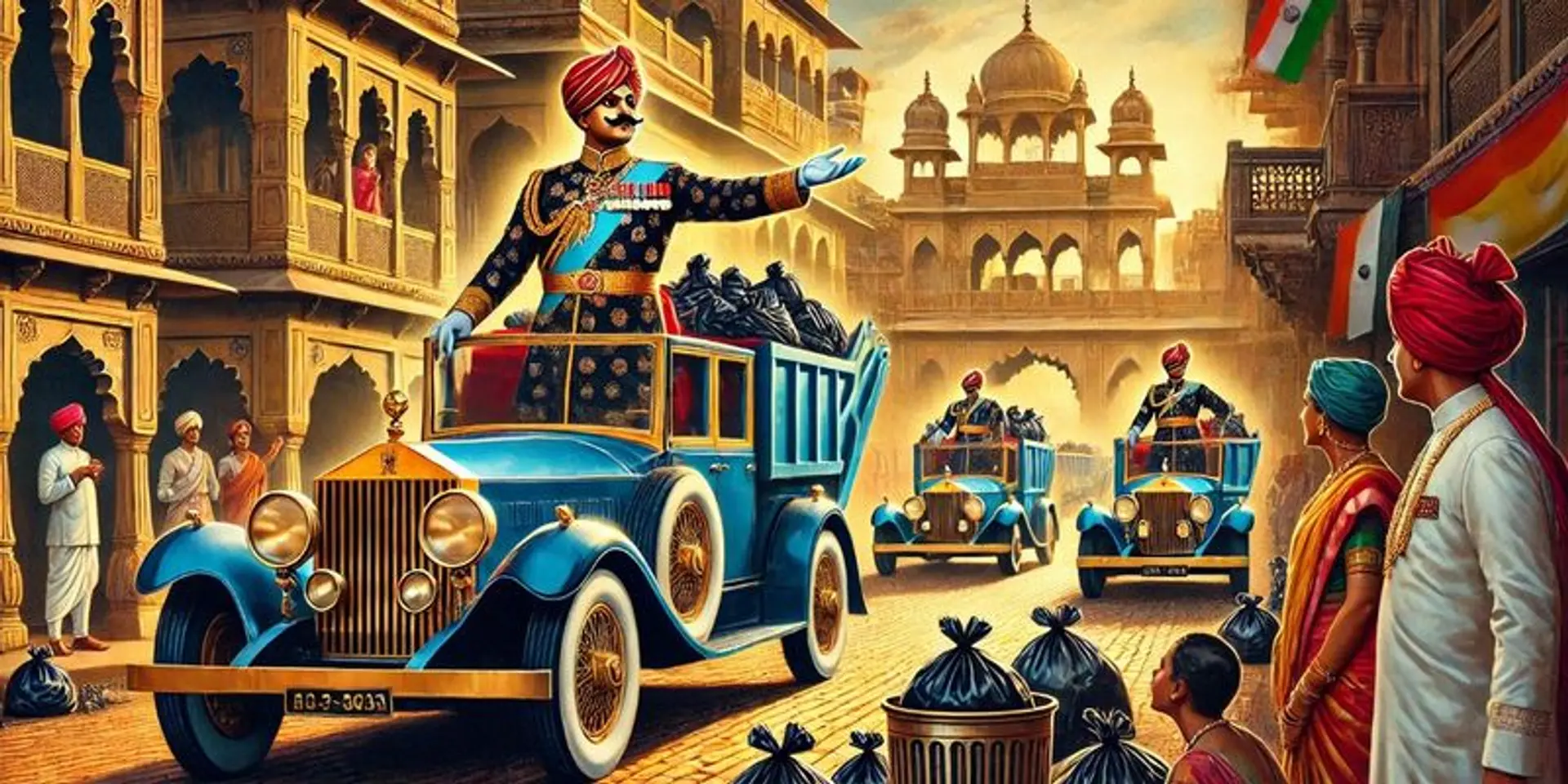Indian King Turns Rolls-Royce into Garbage Carriers: A Tale of Royal Revenge
An Indian king turned Rolls-Royce, the epitome of luxury, into garbage carriers to teach a powerful lesson in dignity and respect. Dive into this jaw-dropping tale of royal revenge and discover the story that shook a global brand—read now!
When we think of Rolls-Royce, words like luxury, opulence, and prestige instantly come to mind. The brand’s symbolic Spirit of Ecstasy hood ornament and its reputation for exclusivity define aristocratic elegance. But imagine a fleet of these prized automobiles transporting garbage. This unbelievable twist in the brand’s legacy stems from the intriguing tale of Maharaja Jai Singh Prabhakar of Alwar, Rajasthan.
This story isn't just about a quirky royal stunt—it speaks volumes about colonial dynamics, human pride, and the assertion of dignity in the face of disrespect.
The Encounter: A Maharaja’s First Brush with Snobbery

Maharaj Jai Singh Prabhakar
In the 1920s, Maharaja Jai Singh Prabhakar, a man known for his flamboyant lifestyle, was visiting London. During his stay, he decided to explore the Rolls-Royce showroom, a brand that epitomised luxury at the time. Dressed casually and without any royal entourage, he entered the showroom intending to inquire about the cars.
The sales staff, unable to recognise his royal stature, treated him with open contempt. Some accounts suggest they even asked him to leave, assuming he could neither afford nor appreciate the grandeur of their vehicles. Insulted but composed, the Maharaja exited quietly, determined to teach Rolls-Royce a lesson they’d never forget.
A Regal Revenge: The Rolls-Royce Garbage Fleet
The Maharaja returned to the showroom the next day, but this time in his full royal attire, flanked by his attendants and showcasing his unmistakable regality. The same salespeople, now acutely aware of his importance, scrambled to offer him the highest respect and attention.
Feigning forgiveness, the Maharaja purchased six of the showroom's finest Rolls-Royce models, a gesture that thrilled the brand. But this joy would soon sour. Back in Alwar, the Maharaja ordered the cars to be stripped of their aristocratic purpose and repurposed for municipal use. These icons of luxury became garbage carriers, tasked with collecting trash and cleaning streets in his kingdom.
Rolls-Royce: A Symbol Tarnished

Word spread like wildfire across India and beyond. The spectacle of Rolls-Royce cars—previously associated with the elite—fitted with trash bins and traversing the streets of Alwar, became a talking point. The brand’s image as the pinnacle of sophistication took a significant hit, especially in colonial territories where British luxury goods symbolized power and authority.
The Maharaja’s ingenious move sent a strong message: disrespect, especially to a royal, would not go unpunished. The cars became the ultimate emblem of poetic justice.
Rolls-Royce's Apology: A Masterclass in Damage Control
Rolls-Royce executives, horrified by the PR disaster, acted swiftly. They reached out to Maharaja Jai Singh with a formal apology. To repair their damaged reputation and appease the Maharaja, the company offered him six additional Rolls-Royce cars at no cost. They also pledged to ensure no such incident would occur in the future.
The Maharaja, having made his point in a manner that the world would not forget, graciously accepted the apology. The garbage-collecting Rolls-Royces were retired from their indignified duties and restored to their former glory.
Separating Fact from Folklore
While the story has been widely recounted, it’s worth noting that historical documentation of this event is sparse. Some historians argue that the tale may have been embellished over time, becoming part of folklore. However, even as an anecdote, it encapsulates cultural tensions and offers an enduring narrative of pride and reparations.
Rolls-Royce in the Modern World
Fast forward to 2024, Rolls-Royce remains a symbol of sophistication, but its history is dotted with such colorful episodes. Today, brands navigate reputational risks differently, leveraging social media, apology campaigns, and influencer partnerships to manage fallout. Imagine how this story would have played out in the age of TikTok and Instagram!
The Legacy Lives On
The story of Maharaja Jai Singh Prabhakar and his garbage-collecting Rolls-Royces is more than a historical oddity; it’s a parable about respect, reputation, and redemption. It shows how symbols of power can be repurposed in unexpected ways to make bold statements.
This tale not only entertains but reminds us of the timeless importance of dignity and customer respect. After all, as the Maharaja proved, luxury is not just about appearances—it’s about how you treat others.
Edited by Rahul Bansal







